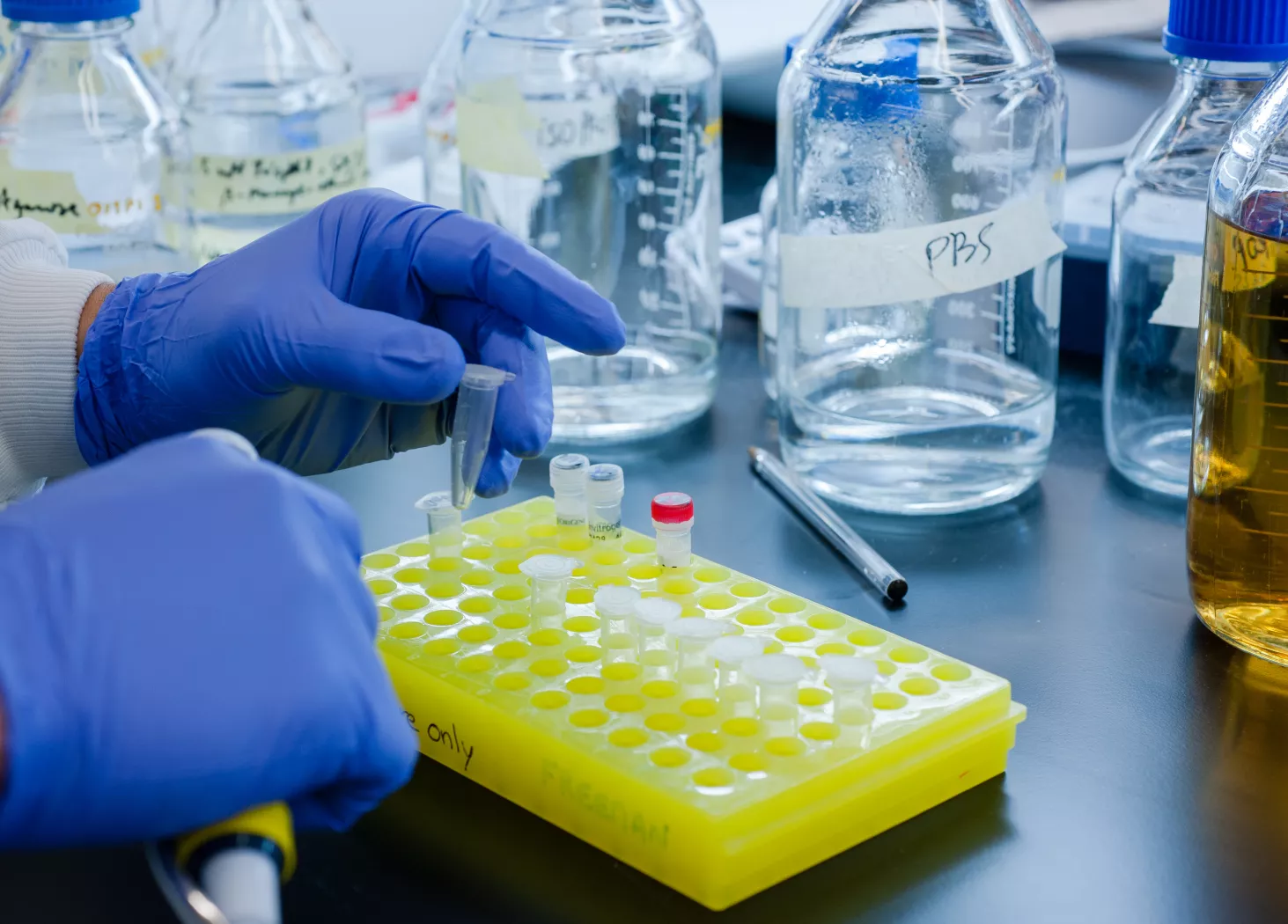Many antibiotics are becoming ineffective due to antimicrobial resistance (AMR), where bacteria become able to withstand the drugs designed to kill them. There is an urgent need to develop new antibiotics, however no new classes of antibiotics have been approved for clinical use since 1987. This ‘discovery void’ is worsened by the lack of financial incentive in new antibiotic development. Drug development is a very lengthy and expensive process with no guarantees of success, and any new antibiotic is unlikely to be profitable, as it will have to be used only as a drug of last resort to prevent resistance from rapidly evolving.
Associate Professor Thomas Lanyon-Hogg of the Department of Pharmacology at Oxford University has been awarded a Wellcome Career Development Award for an interdisciplinary research program using innovative chemical biology methods to develop molecules that can work with, or act as alternatives to, existing antibiotics. This award will allow Prof Lanyon-Hogg and his group to explore several different ways of developing new molecules to combat antibiotic resistance over the next 8 years.

The team will develop ‘antibiotic adjuvants’, molecules that can be partnered with current antibiotics to slow or reverse resistance. As these adjuvants partner with antibiotics, they do not need to be kept as drugs of last resort, potentially circumventing the limited financial markets that prevent much antibiotic drug development.
The four main workstreams of this program include:
Investigating the interactions of antibiotics within bacterial cells
This workstream aims to understand what antibiotic molecules are interacting with inside the bacterial cell. This includes investigating beyond the main target of the antibiotic, to characterise interactions with other proteins and structures within the cell which could be important for antibiotic activity or responsible for resistance. The work will use ‘click chemistry’ probes which are essentially ‘molecular fishing rods’ to isolate and identify all proteins that the antibiotic molecule interacts with inside live bacteria.
Developing molecules to slow the evolution of resistance
Some antibiotics work by damaging bacterial DNA, and repair of this DNA damage can trigger a process known as the ‘SOS response’ in the affected bacteria. The SOS response increases the rate of genetic mutations, which in turn speeds up the development of resistance to antibiotics. This workstream will aim to develop molecules to target and suppress the SOS response, to inhibit the evolution of resistance to antibiotics.
Inactivating bacterial enzymes that degrade antibiotics
One of the ways bacteria can resist the action of antibiotics is by producing enzymes that break down the antibiotic molecules before they can work. This project will aim to modify existing antibiotics so that they can inactivate their own resistance enzymes.
Searching for ‘conditional’ antimicrobial molecules
All existing antimicrobials kill bacteria both inside the human body and in the wider environment. This means that when antibiotics get into the environment, such as through contaminated wastewater, they continually kill bacteria and drive the emergence of resistance. This project aims to identify molecules that work against bacteria exclusively inside the body, by harnessing the immune system’s attack on the bacteria. These molecules make the bacteria more vulnerable to the natural immune response, rather than being directly toxic to the bacteria on their own. To identify these type of antibiotics, the group will screen thousands of potential molecules for antimicrobial activity only in the presence of the immune system’s response.
Regarding the award, Prof. Lanyon-Hogg said:
“This generous funding from Wellcome will allow us to investigate several new approaches in parallel to tackle bacterial resistance mechanisms. By using chemical biology approaches, I hope that this work will identify novel targets to combat resistance and provide molecules that can act as start points for future drug development.
Antimicrobial resistance is one of the greatest challenges of our time, and it is an inherently complex and multifaceted problem. I believe interdisciplinary research may be critical to designing new and novel solutions – because ultimately if the problem we face is not confined to a single scientific discipline, then the solutions will not be either.”
